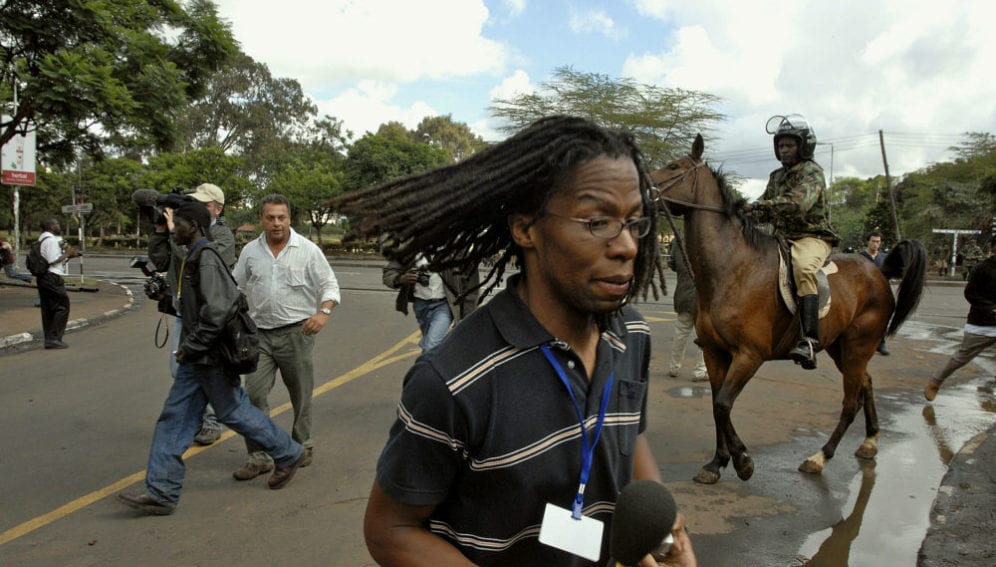By: Esther Nakkazi
Send to a friend
The details you provide on this page will not be used to send unsolicited email, and will not be sold to a 3rd party. See privacy policy.
[NAIROBI] A paradigm shift in journalism focusing on reporting news anchored on evidence-based solutions could change the media landscape and benefit in Africa more, a meeting has heard.
Solution journalism — rigorous reporting about how people are responding to problems — has become necessary because of digital and broadcast news, according to the US-based Solutions Journalism Network (SJN).
“Now we have news 24 hours, if everything is about problems, people will switch off.”
Carolyn Robinson, Solutions Journalism Network
“Now we have news 24 hours, if everything is about problems, people will switch off,” says Carolyn Robinson, a regional trainer with the SJN. “We have to change because times have changed.”
A media training workshop held last month (13 February) heard that the SJN started the media shift five years ago in the United States.
The training workshop that was attended by about 40 journalists from Kenya, Nigeria, Tanzania and Uganda, took place ahead of the Kenya Medical Research Institute (KEMRI) 8th annual scientific and health conference held from 14-16 February in Nairobi.
It is the first time the SNJ has started a project outside of the United States and partnered with an African research organisation for local journalists to train journalists and build capacity in solutions journalism in real-time and at a conference.
Robinson said journalists can still ask questions about problems, be sceptical and in addition to pointing out what is wrong, they should move forward and include what people are doing to fix the problems.
It is not just about who did it but how it was done, according to Robinson. “If you ask those questions as a journalist you will start to move in a solutions direction,” she explains.
Naphtali Agata, chairman of KEMRI board of management, says that partnering with journalists enhances research dissemination.
“If the results of our findings are shared, it will stimulate the need for further research,” Agata explains.
This piece was produced by SciDev.Net’s Sub-Saharan Africa English desk.














